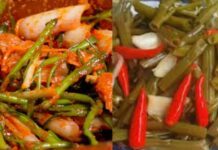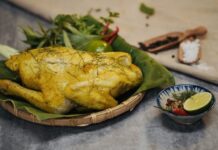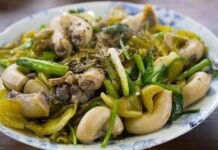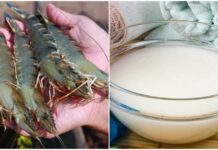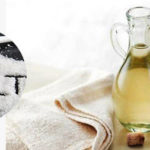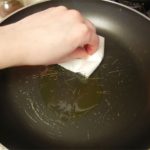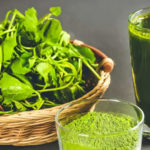Fried food is one of the most popular cooking methods, loved by many. Fried dishes usually have a crispy golden crust while still retaining a soft, moist interior. When cooking fried dishes at home, many people encounter the problem of oil splattering everywhere, making the kitchen dirty and increasing the risk of burns.
This issue is not difficult to solve. You can apply some small tips below to limit oil splattering while frying food.
Use a high-walled pan
When frying, you should use a non-stick pan to prevent food from sticking to the bottom of the pan. In addition, prioritize using pans with high walls to effectively prevent oil splattering.
Drain or dry the food before frying
The main reason oil splatters when frying is due to water from the food. Cooking oil and water have different boiling points. When cold water meets hot oil, the water will quickly evaporate, causing the oil to splatter into the air. Therefore, you need to drain or pat dry the food before putting it into the hot oil.
Another way to keep the food dry while frying is to coat it with a thin layer of flour. The flour will absorb the external moisture of the food. When put into the frying pan, it will not cause oil splattering. Additionally, the flour also helps the dish have a crispier crust. Note that you should not use too much flour, as it can make the dish become lumpy and less appetizing.
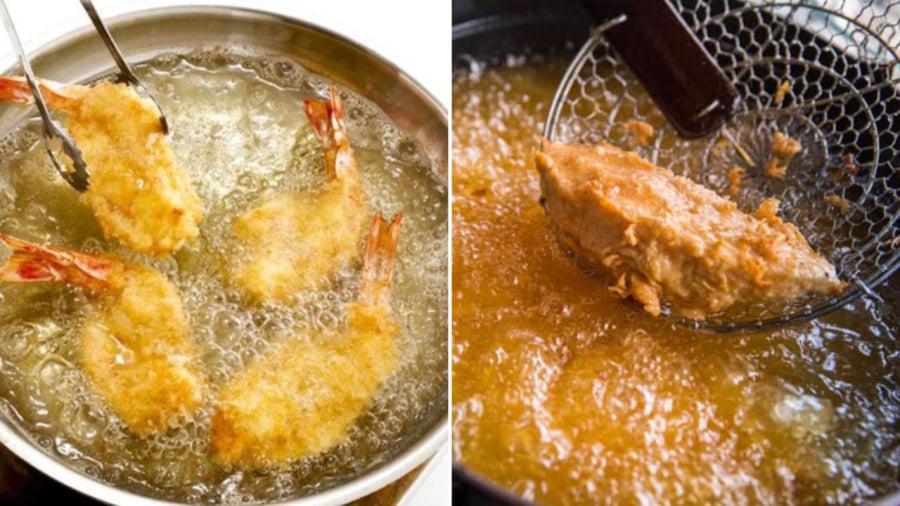
To fry food without worrying about oil splattering, you need to know some small tips.
Use fine salt
When pouring oil into the pan, wait for the oil to heat up and then add a little salt. After that, you can put the food into the pan and fry it as usual. The salt will prevent the oil from splattering while frying, making the food crispier and not sticking to the pan.
Use wheat flour
When the oil starts to heat up, add 1-2 tablespoons of wheat flour to the pan and stir evenly. Then, put the food into the pan and fry it as usual. The wheat flour will prevent the oil from splattering during the frying process and also increase the non-stick ability.
Use lime
You can cut a piece of lime and rub it all over the inside of the pan before adding the oil.
Use ginger
Similar to lime, ginger can form a thin film that helps prevent sticking and oil splattering. Cut a thin slice of ginger and heat the pan. When the pan is hot, place the ginger slice in the pan. Use chopsticks to move the ginger slice around the surface of the pan. Do this for a few minutes until the ginger slice becomes dry, then pour the oil into the pan and fry as usual.
Use a splatter screen
Currently, there are splatter screens available on the market with small holes that help prevent oil splattering while frying. Using this tool instead of a pot lid not only prevents oil splattering but also allows steam to escape, keeping the food crispy and not soggy like when covered with a lid.
How Often Should Women Replace Non-Stick Pans?
With non-stick pots and pans still being widely used despite their decreased effectiveness, many are wondering: Could this have an impact on people’s health?











